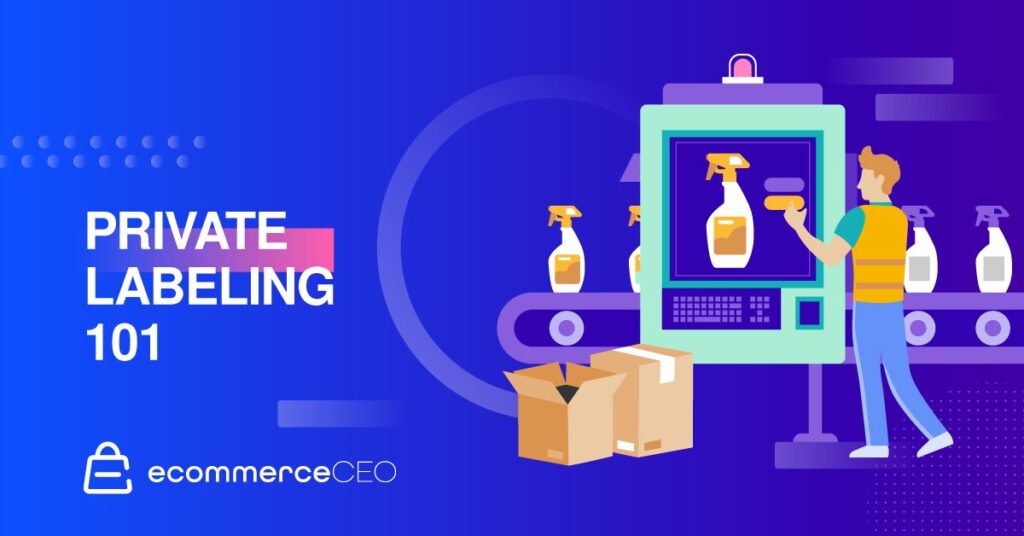In the fiercely competitive world of commerce, differentiation is the key to survival and success. While creating a product from scratch is a noble pursuit, it is often a capital-intensive and time-consuming process with immense risk. This is where the powerful strategy of private label emerges as a game-changer for ambitious entrepreneurs and established businesses alike. A private label strategy involves partnering with a manufacturer to produce goods, which are then sold under your own brand name. This model empowers businesses to build a brand, control their narrative, and capture greater market share without the complexities of operating a factory. This article delves into the world of private label, exploring its profound benefits, potential challenges, and the essential steps to launching a successful brand of your own.
What Exactly is Private Label? Beyond White Label and Generic Goods
It’s crucial to distinguish private label from related concepts like “white label” and generic products.
Generic Products: These are unbranded, basic commodities where the sole differentiator is often price (e.g., supermarket “no-name” staples).
White Label Products: These are generic products produced in bulk by a manufacturer and sold to multiple retailers, who then apply their own branding and packaging. The product itself is identical across different sellers.
Private Label Products: This is a more involved and strategic partnership. A private label manufacturer produces goods to a retailer’s specifications. This can include custom formulations, unique features, exclusive packaging, and distinct design. The product is exclusive to the retailer’s brand, creating a truly unique offering in the market. When you choose a private label strategy, you are not just slapping your logo on a generic item; you are curating and often co-creating a product that reflects your brand’s unique value proposition.
The Compelling Advantages of a Private Label Strategy
Adopting a private label model offers a multitude of benefits that can accelerate business growth and build long-term equity.
-
Brand Building and Customer Loyalty
This is the most significant advantage. Private label allows you to move beyond being a mere reseller of other brands. You become the brand. This shift enables you to tell a story, build an emotional connection with your audience, and foster unwavering customer loyalty. When customers have a positive experience with your branded product, they associate that quality with your company, not a third-party manufacturer. This loyalty translates to repeat business and reduces your reliance on competing solely on price.
-
Higher Profit Margins
By cutting out the brand-name middleman, you eliminate a major cost layer. You source products directly from the manufacturer, allowing you to control pricing and enjoy significantly higher profit margins compared to selling national brands. While there are costs associated with branding, packaging, and marketing, the overall margin structure is often far more favorable, providing greater financial flexibility for growth and investment.
-
Greater Control Over Product and Pricing
A private label strategy hands you the reins. You have direct input on product quality, ingredients, materials, and design. This control allows you to identify gaps in the market and develop products that perfectly meet your target audience’s unmet needs. Furthermore, you have complete autonomy over pricing strategy. You are not bound by a manufacturer’s suggested retail price (MSRP), allowing you to position your brand in the premium, value, or mid-market segment as you see fit.
-
Enhanced Market Differentiation
In a saturated market, selling the same products as everyone else is a recipe for obscurity. Private label is your ultimate tool for standing out. By offering exclusive products that cannot be found anywhere else, you create a unique value proposition. This differentiation makes your business the destination for that specific product, shielding you from direct price competition with other retailers and building a defensible market position.
-
Scalability and Business Value
A private label business is inherently more scalable and valuable than a commoditized retail operation. A portfolio of successful owned brands is a valuable asset that can be leveraged for financing or sold at a premium. It demonstrates to investors and acquirers that you have built a real, defensible business with intellectual property and customer loyalty, not just a portfolio of third-party products.
Navigating the Challenges and Considerations
While powerful, the private label path is not without its hurdles. A successful launch requires careful planning and execution.
Initial Investment and MOQs: Developing a custom product require an upfront investment in research, formulation, and design. Manufacturers also have Minimum Order Quantities (MOQs), which can be a financial barrier to entry for new businesses.
Research and Development (R&D): You are responsible for the product’s conception. This requires thorough market research to identify opportunities and a clear vision for what will make your product successful.
Marketing and Brand Building: The burden of marketing shifts entirely to you. Without the built-in demand of a national brand, you must invest in building awareness, generating reviews, and educating consumers on why they should choose your brand. This requires a solid digital marketing strategy encompassing SEO, social media, and content creation.
Quality Control and Liability: As the brand owner, you are ultimately responsible for the product’s quality and safety. Vetting manufacturers thoroughly and instituting rigorous quality control checks is non-negotiable to protect your brand’s reputation.
The Blueprint for Launching a Successful Private Label Brand
- Niche Identification and Market Research: Begin by identifying a profitable niche with high demand but lower competition. Use tools like Google Trends, Amazon Best Sellers, and keyword research to validate your idea. Understand your target customer’s pain points deeply.
- Source a Reputable Manufacturer: Platforms like Alibaba, Thomas net, and industry-specific trade shows are excellent for finding manufacturers. Vet them carefully: request samples, check certifications, read reviews, and communicate your specifications clearly.
- Branding and Packaging Design: Your brand is your promise. Develop a compelling brand name, logo, and story. Invest in professional, high-quality packaging that communicates your brand’s value and stands out on the shelf (physical or digital).
- Develop a Marketing Launch Plan: Build hype before your launch. Utilize your email list, social media channels, and content marketing to create anticipation. Plan for an initial offer to generate crucial early reviews and sales velocity.
- Analyze, Iterate, and Expand: Once launched, closely monitor sales data, customer feedback, and product reviews. Use this information to refine your product, packaging, and marketing strategy. The goal is to start with a single hero product and gradually expand your private label line based on proven success.
Conclusion: Taking Ownership of Your Destiny
The private label model represents a fundamental shift from retailing to brand ownership. It is a strategy that demands more upfront work but offers unparalleled rewards in terms of brand equity, profitability, and market control. In an era where consumers crave authentic connections with the brands they support, private label provides the framework to build that relationship on your own terms. By carefully selecting your niche, partnering with the right manufacturer, and telling a compelling brand story, you can leverage the power of private label to build a lasting and profitable empire. It is not just about selling products; it is about building a legacy.


